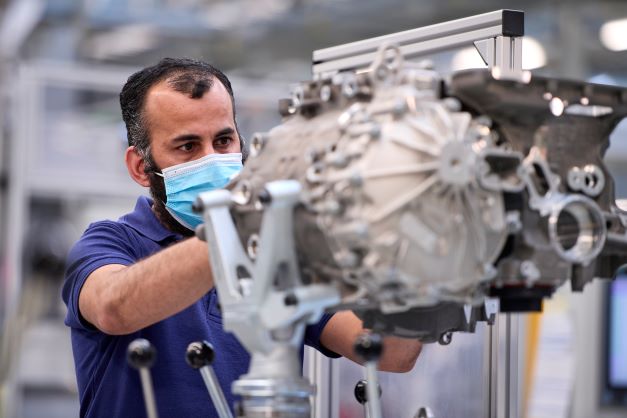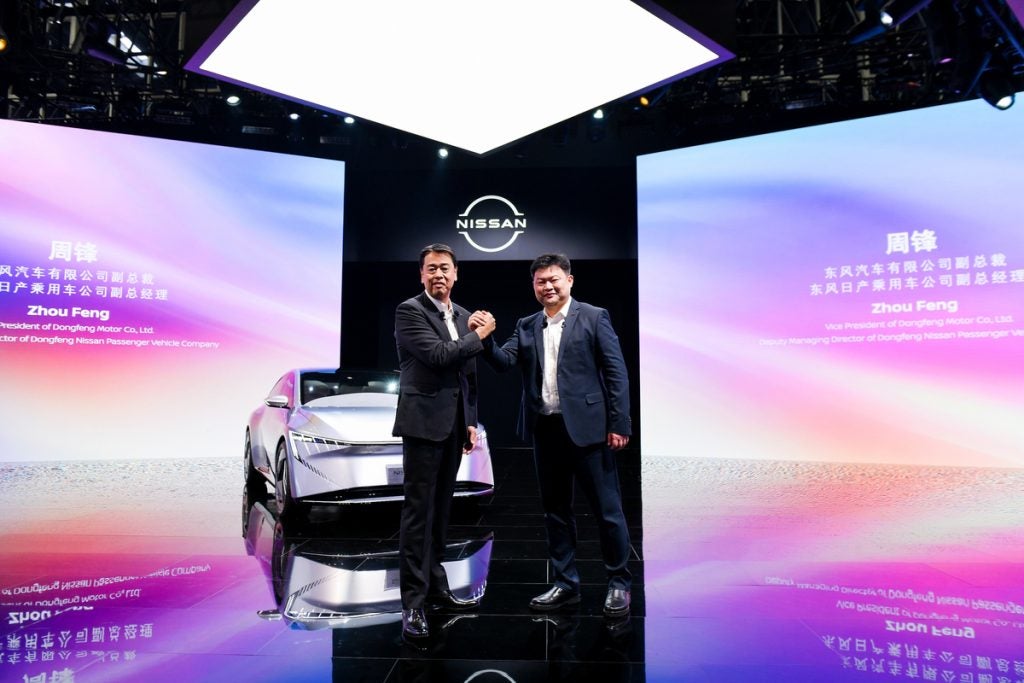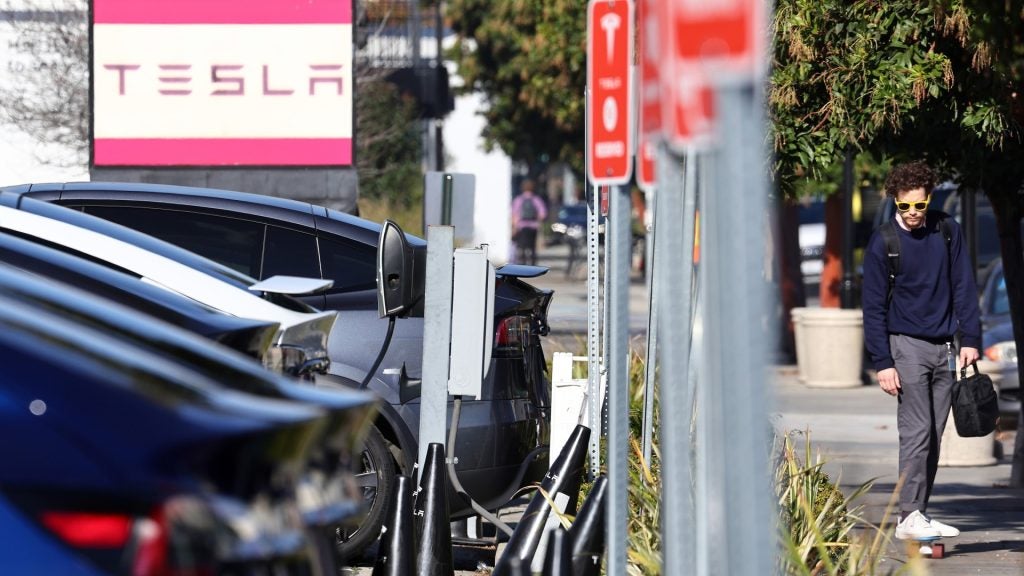
The transition to electric mobility has started impacting the employment structure in the automotive industry as a slew of OEMs and component suppliers have announced planned cuts to their employment numbers due to the shift to electrification. European OEMs are the most proactive on this front. Outside Europe an almost equally gloomy picture is painted. Employment levels in the automotive sector are constantly under threat as OEMs and suppliers seek to wring greater margins from their operations, while the economic and operational disruption from the COVID-19 pandemic has compounded the issues. In the ICE age, the systemic pressures were present due to increasing digitalisation, automation and robotics – ie the transitioning to industry 4.0 to break away from the labour-intensive traditional model. The age of electrification, with vehicles that are simpler to manufacture due to fewer parts and without the need for such an expansive in-house and external powertrain value chain is precipitating new pressure on automotive employment. Over and above these factors, there is also the angle of share mobility/subscription models that comes into the picture aiming to reduce car ownership over time and bring down parc and new sales. The factors suggest that job losses in the auto industry were already on the cards but the shift to electrification will deepen the magnitude of the employment woes. Like so much else, the pandemic has changed management attitudes to embracing the cloud. Cloud migration is now a top business priority for 44% of business and tech leaders canvassed in Tech Monitor’s Technology Leaders Agenda 2021. The global survey of 611 senior technology executives covers leadership priorities across the technology function and makes clear that the cloud is now a central strategic pillar for ambitious businesses everywhere. Thus far the job losses that have the shift to electrification as the primary theme tally to nearly 70,000 among the OEMs. Looking into the supplier network a similar position is reported. In Europe alone, Robert Bosch and GKN have announced jobs cuts and plant closures due to the shift away from ICE powertrains. Unions in Europe predict that millions of jobs could be lost. With a VW analysis positing that 12% of the automotive workforce in Germany alone is threatened by electrification it’s easy to see how unions’ concerns could be scaled up to a sector that employs 14.6m people directly and indirectly in Europe according to Acea. There are ongoing debates on the intensity at which the jobs will be impacted.
Thatcham Research has praised the safety of electrified vehicles reviewed in its latest round of crash tests, awarding the Ford Mustang Mach-E and Ioniq 5 five stars. It noted the “majority of dedicated EVs tested throughout 2021 have achieved top Euro NCAP ratings”. The Mustang performed well in all areas of testing, “providing a great example of the ongoing investment in safety made by carmakers”, Thatcham said. The Mach-E was also one of the first few cars to have Autonomous Emergency Braking (AEB) both in front to protect against forward collisions and also at the rear. ‘Reverse AEB’ can help to avoid and mitigate reversing accidents into both pedestrians and other vehicles, although this feature would need to be switched on manually by the driver before use,” Thatcham said. Chief strategic research officer Matthew Avery said: “It is positive to see a mainstream brand like Ford contributing to the EV safety narrative, proving that EVs are just as safe as ICE vehicles and a good choice of family car. “This well-rated EV is a good, safe choice for families and represents a great start for Ford in paving the way for its future Mustang EV range.”
Denso said it was reorganising its North America engineering and R&D divisions to better integrate the company’s electrification, thermal and safety systems. North American design & engineering will consolidate its five product groups to enable teams to work more cohesively, enhancing integration, performance, and quality. The thermal and powertrain-electrification product groups will become the green technology group. This will develop products which reduce cost and improve range, performance and convenience of battery electric and alternative powertrain vehicles. The group will develop technology for a wide array of areas and continue to improve internal combustion engine efficiency. The mobility product group will align with so called ‘peace of mind’ and be known as the mobility systems group, headed by TJ Liu, a SVP. This team will oversee development of ADAS, electronics, cockpit and connectivity products plus improving electrical and electronic systems that consolidate computing across domains. North America R&D will reorganise under three key areas to streamline its focus on connected systems, connected functions and R&D strategy.
West Midlands Gigafactory, a public private joint venture between Coventry City Council and Coventry Airport, has unveiled further plans to develop the UK’s largest battery gigafactory. The Gigafactory will start supplying batteries for electric vehicles from 2025. It will be the result of a GBP2.5bn (US$3.4bn) investment, creating up to 6,000 new jobs directly and thousands more in the wider supply chain in Coventry and the surrounding region. The new Gigafactory, which will command more than half a million square metres of space, equivalent to 74 full-size football pitches, will be one of the largest single industry facilities of any kind in the UK and at full capacity will be capable of delivering up to 60GWh of production per year. It will be powered by a planned boost to the local energy network, giving the Gigafactory access to 100% renewable electricity supply, from a combination of solar power and grid-supplied renewables. The factory will be able to recycle used batteries, as well as build new ones in an approach known as ‘cradle to cradle.’
September was another significant month for Europe’s automotive industry, as new car registrations fell by 25% to just 964,800 units. Felipe Munoz, global analyst at JATO Dynamics, said: “Dealers continue to face issues with the availability of new cars due to the chip shortage. As a result, unwilling to wait more than a year for a new car, many consumers have turned to the used car market.” Year to date, Europe’s 26 markets continued to outperform in comparison to 2020, however the gap narrowed. By the end of the first half of the year, total registrations were 27% higher than in H1 2020. Results to the end of September show that this gap has narrowed to just 7%. Munoz said: “This year, the industry has responded well to the the pandemic, but it is now facing new supply chain challenges. The growing popularity of EVs is encouraging but sales are not yet strong enough to offset the big declines seen across other segments.” OEMs with a large offering of pure electric and plug-in hybrid cars have been less impacted by the current crisis, as European consumers continue to take advantage of the various incentives and subsidies available for these vehicles. In stark contrast, both the chip shortage and the growing severity of the climate crisis have caused diesel vehicle sales to plummet. In September, low emission vehicles posted a monthly growth of 44%, to 221,500 units, while diesel registrations decreased by 51%, to 167,000 units. Before the pandemic, there were 10.3 new diesel cars registered for every electric or plug-in hybrid vehicle. Today, that ratio has decreased to just 1.3. Munoz added: “Shifts of this magnitude are rare, and a number of factors have contributed to the current state of play. In addition to incentives, OEMs have enhanced their offering with more models and better deals, and many are shifting their limited supply of semiconductors to the production of EVs, instead of ICE vehicles.” As a result of the EV boom, the Tesla Model 3 topped the European model rankings in September, with 24,600 registered units, a 2.6% market share. This is both first time that an EV has led the market and the first time that a vehicle manufactured outside of Europe has occupied the top spot.
Hertz announced it would acquire the largest EV rental fleet in North America “as consumer interest in electric vehicles (EV) skyrockets.” It will place an initial order for 100,000 Teslas by the end of 2022 and establish new EV charging infrastructure across its global operations. “Electric vehicles are now mainstream, and we’ve only just begun to see rising global demand and interest,” said Hertz interim CEO Mark Fields. The rental car company, forced into bankruptcy by a Covid influenced business downturn, from which it later emerged restructured, claimed 40% of US consumers said they were likely to consider an electric vehicle the next time they are in the market for a new vehicle. The growth is powered by electric vehicles’ high efficiency, positive user experience and climate change benefits coupled with battery breakthroughs and rapidly expanding charging networks plus EV drivers also benefit from lower maintenance and fuel costs, Hertz said. Beginning early in November, customers will be able to rent a Tesla Model 3 at locations in US major markets and some European cities. Hertz also is installing thousands of chargers throughout its location network. Customers who rent a Tesla will have access to 3,000 of the automaker’s supercharging stations throughout the US and Europe. Hertz said it would offer a “premium and differentiated rental experience” for the Tesla EVs. With the current order, EVs will comprise around a fifth of the rental firm’s global fleet and is expected to be supported by a combination of Level 2 and DC fast charging in 65 markets by the end of 2022 and 100 markets by the end of 2023.
How well do you really know your competitors?
Access the most comprehensive Company Profiles on the market, powered by GlobalData. Save hours of research. Gain competitive edge.

Thank you!
Your download email will arrive shortly
Not ready to buy yet? Download a free sample
We are confident about the unique quality of our Company Profiles. However, we want you to make the most beneficial decision for your business, so we offer a free sample that you can download by submitting the below form
By GlobalDataHave a nice weekend.
Graeme Roberts, Deputy Editor, Just Auto







Related Company Profiles
Coventry Airport Limited
AEB Spa
Robert Bosch GmbH
VW Company Limited
EV